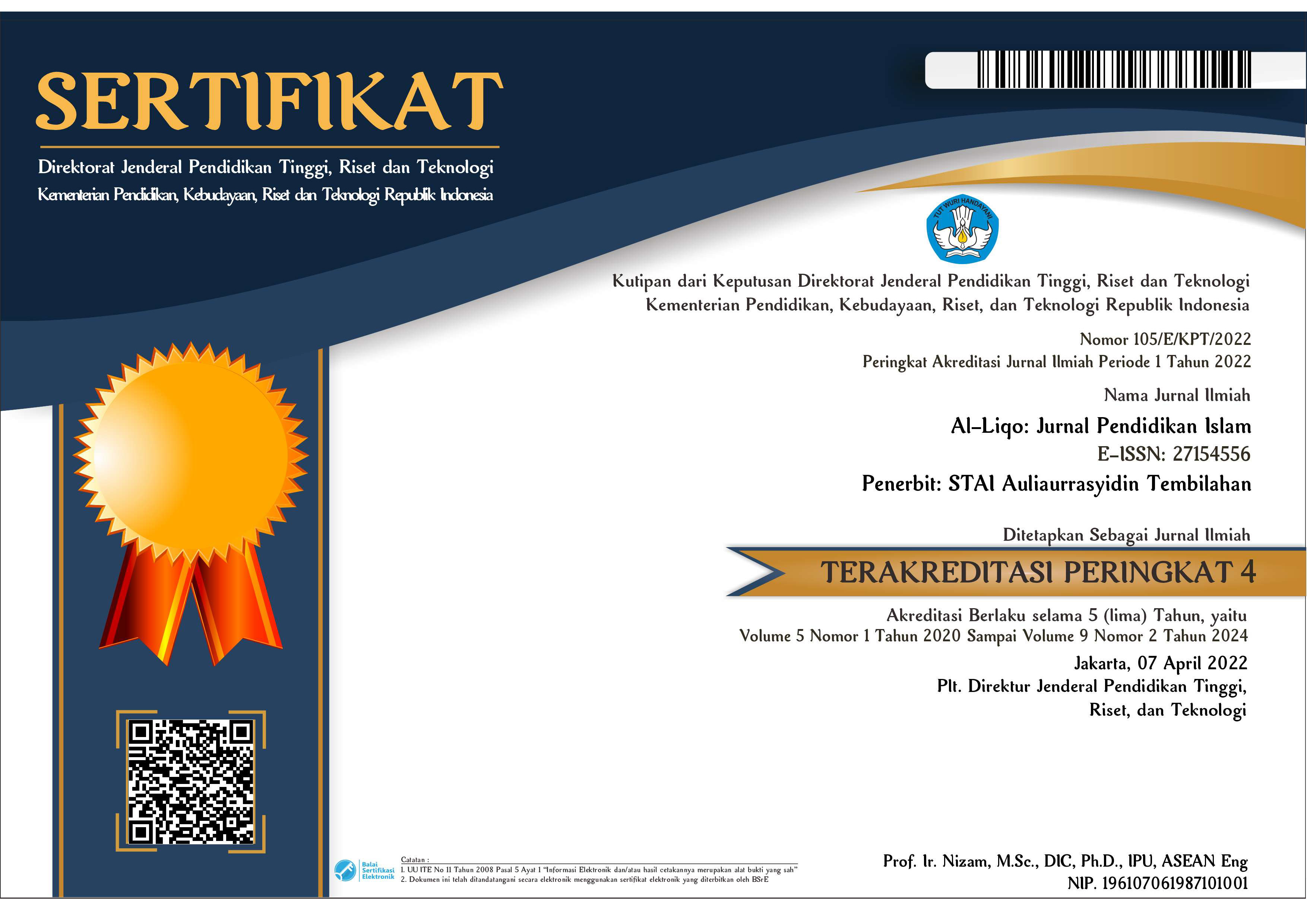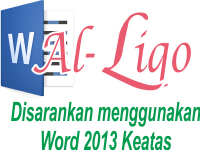Pendidikan Anak Perspektif Psikologi
DOI:
https://doi.org/10.46963/alliqo.v6i1.313Keywords:
Psychology, Children, EducationAbstract
The success of children's education is the success of a nation. Teachers must understand the psychology of learning so that education can play a role and influence children. This research was descriptive in the form of library research which was formulated through deductive analysis. Research on children's education with a psychological perspective needs to be carried out to determine the acceptance of children to the environment (family, school, and surroundings) in providing valuable education for children in line with their psychological development, and they can undergo the learning process through a conducive environment.
Downloads
References
Akmal, H. (2014). Seluk Beluk Ilmu Jiwa Agama. Jakarta: Raja Grafindo Persada
Arvan, P. (2010). The 7 Laws of Happiness. Bandung: Kaifa
Bimo, W. (2010). Pengantar Psikologi Umum. Yogyakarta: ANDI
Chairinniza, G. (2007). Keberhasilan Anak Tergantung Orang Tua. Jakarta: Gramedia
Irfan, E. (2010). Keajaiban Berfikir Positif. Yogyakarta: Media Baca
Muhibin, S. (2015). Psikologi Belajar. Jakarta: Raja Grafindo Persada
Rohmalina, W. (2015). Psikologi Belajar. Jakarta: Raja Grafindo Persada
Rosleni, A. (2015). Psikologi Islam. Bandung: Pustaka Setia
Sarlito, W. S. (2010). Psikologi Remaja. Jakarta: Raja Grafindo Persada
Sri, R., & Siti, S. (2004). Perkembngan Anak Dan Remaja. Jakarta: Rineka Cipta
Syamsu, Y. (2008). Psikologi Perkembangan Anak Dan Remaja. Bandung: Rosda Karya
Zakiah, D. (2010). Ilmu Jiwa Agama. Jakarta: Bulan Bintang
Downloads
Published
How to Cite
Issue
Section
License
Authors who publish with this journal agree to the following terms:
1. Copyright on any article is retained by the author(s).
2. The author grants the journal, right of first publication with the work simultaneously licensed under a Creative Commons Attribution shareAlike 4.0 International License that allows others to share the work with an acknowledgment of the work’s authorship and initial publication in this journal.
3. Authors are able to enter into separate, additional contractual arrangements for the non-exclusive distribution of the journal’s published version of the work (e.g., post it to an institutional repository or publish it in a book), with an acknowledgment of its initial publication in this journal.
4. Authors are permitted and encouraged to post their work online (e.g., in institutional repositories or on their website) prior to and during the submission process, as it can lead to productive exchanges, as well as earlier and greater citation of published work.
5. The article and any associated published material is distributed under the Creative Commons Attribution-ShareAlike 4.0 International License







2.png)



